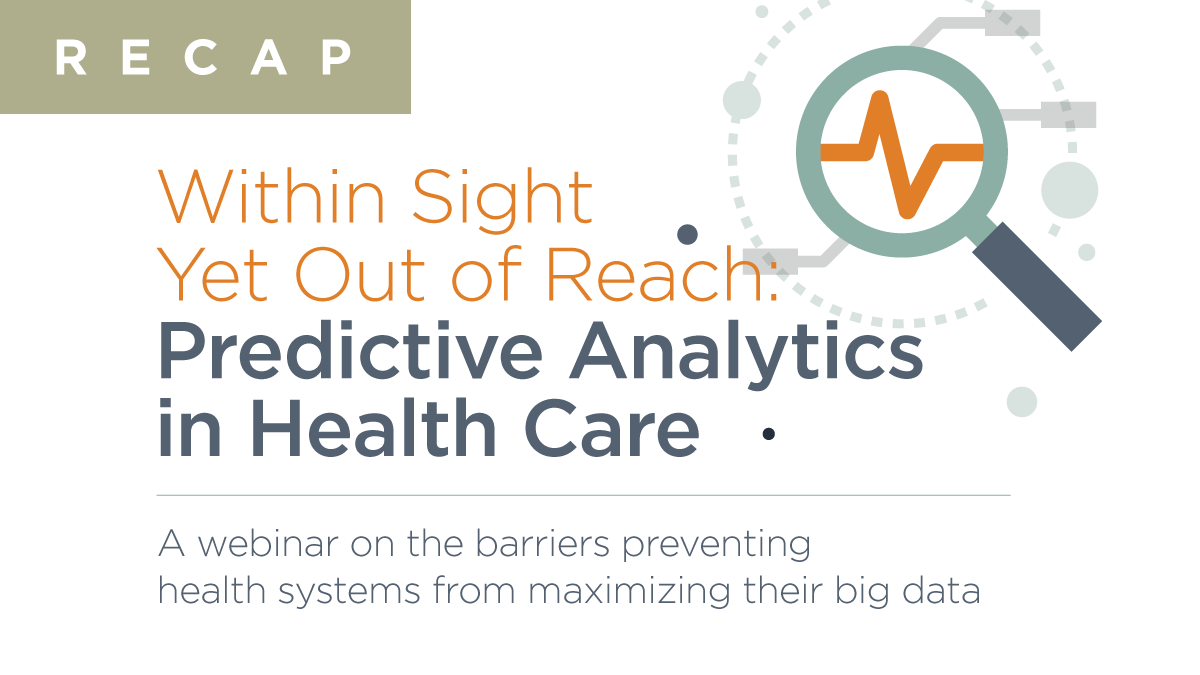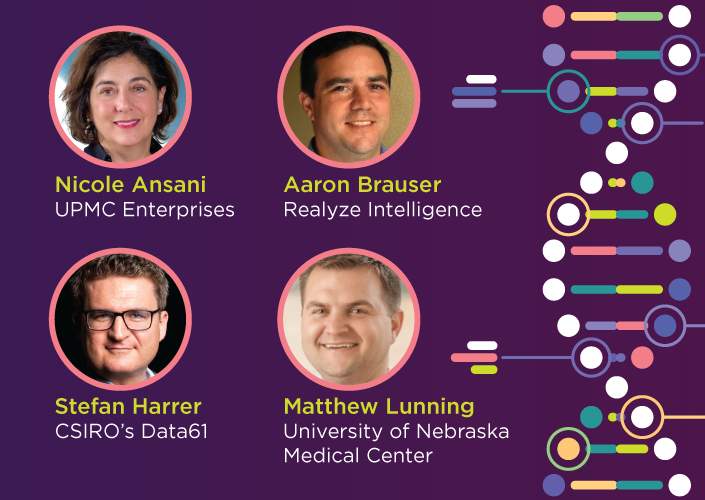Is there substance behind the buzz of predictive analytics in health care?
Dr. Oscar Marroquin, Dr. Mona Siddiqui, and Travis Frosch weigh in on the hype surrounding big data in health care in a webinar from the CCM.
Watch the webinar:
There’s a lot of hard work that health systems need to do if they want to take advantage of the power of big data and predictive analytics in health care.
“The promise of big data is real, but I don’t think a lot of organizations have thought through all the hard work” that’s needed to implement predictive analytics, said Mona Siddiqui, MD, Chief Data Officer of the Department of Health and Human Services.
Dr. Siddiqui was one of three experts who spoke during Center for Connected Medicine webinar, “Within Sight Yet Out of Reach: Predictive Analytics in Health Care.” The webinar, which explored barriers preventing health systems from maximizing their big data, also featured Oscar Marroquin, MD, Chief Clinical Analytics Officer at UPMC, and Mr. Travis Frosch, Senior Director of Analytics at GE Healthcare.
The webinar covered a variety of questions about predictive analytics, including:
- Why health care provider organizations are having difficulty implementing predictive analytics.
- How health care leaders can overcome hurdles.
- Examples of health systems using predictive analytics to make improvements.
Asked about obstacles that are preventing health systems from maximizing their big data to make improvements, Mr. Frosch said the use of predictive analytics can lead to counter-intuitive results, which may be difficult to implement in a health care setting.
“Predictive analytics is very disruptive. … Sometimes it can break the way a health care system thinks,” he said. “For that reason, you really need complete buy-in at the highest level of an organization.”
Dr. Siddiqui said a lack of interoperability and the need to protect patient data are challenges – even for the many agencies operating under the Department of Health and Human Services.
“We’re trying to de-risk the sharing of data … without having to go through legal agreements every single time,” she said.
And Dr. Marroquin argued for health systems to invest in expert teams to perform analytics. For some health systems, advanced analytics may be performed as a secondary responsibility in the IT department, he said.
“At UPMC, we never really were able to truly consume our data to drive insights until we actually had a dedicated team to do analytics,” he said. “Having a dedicated team is absolutely necessary.”
Learn more about the survey research:
What barriers are preventing health systems from using predictive analytics to maximize their big data? Download a summary of key findings from the survey, featuring Dr. Pamela Peele of UPMC, to find out what health systems report about their challenges using predictive analytics.



